Mobile:+86-311-808-126-83
Email:info@ydcastings.com
English
Efficient Automobile Water Pump: Reliable Cooling for Engine Manifolds
Advanced Solutions in Automotive Thermal Management: The automobile water pump
In the intricate landscape of automotive engineering, the efficient management of engine temperature is paramount for optimal performance, longevity, and emissions control. At the heart of this critical system lies the automobile water pump, a component essential for circulating coolant throughout the engine and radiator. This comprehensive overview delves into the technical intricacies, industry trends, and strategic advantages offered by high-quality water pump solutions, particularly focusing on robust pump shells and advanced designs like the automotive electric water pump.
As vehicle technology advances, traditional mechanical pumps are increasingly being supplemented or replaced by sophisticated electric water pump for car applications, providing precise flow control and improved fuel efficiency. Our commitment to excellence ensures the provision of components that meet stringent industry standards, driving innovation in automotive thermal systems.
Industry Trends and Technological Evolution
The automotive industry is undergoing a transformative shift, driven by electrification, stricter emissions regulations, and the demand for enhanced performance. These trends profoundly impact the design and functionality of the automobile water pump. Conventional belt-driven mechanical pumps, while reliable, operate directly with engine RPM, leading to inefficiencies at various engine speeds. The emergence of the automotive electric water pump addresses this by allowing independent control of coolant flow, optimizing engine temperature regardless of engine load or speed. This translates to quicker engine warm-up, reduced parasitic losses, and improved fuel economy, particularly in stop-start systems and hybrid vehicles.
Another significant trend is the integration of advanced materials and manufacturing processes. Lightweighting initiatives are pushing for high-strength aluminum alloys and sophisticated composite materials for pump housings and impellers. Furthermore, the increasing complexity of modern engines, often featuring turbochargers and intricate engine manifolds, demands more precise and robust cooling solutions. This necessitates pump designs capable of handling higher thermal loads and pressures while maintaining durability over extended service lives.
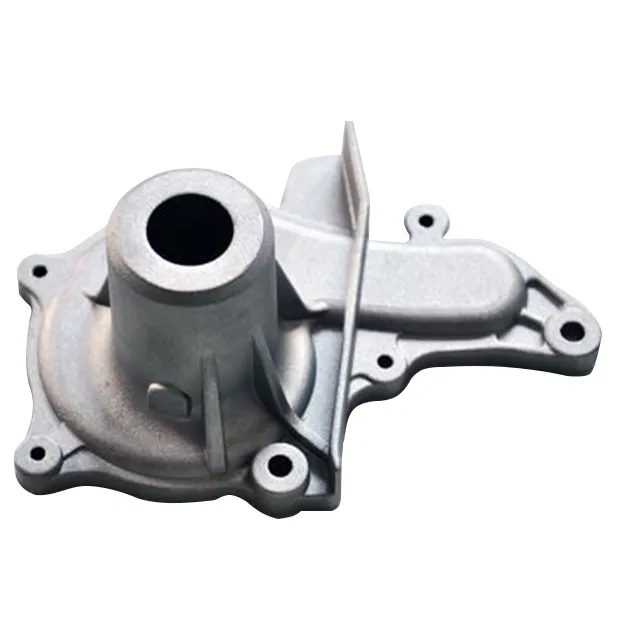
Manufacturing Process Flow of an Automobile Water Pump Shell
The production of a high-quality automobile water pump shell is a testament to precision engineering and advanced manufacturing techniques. Our process emphasizes material integrity, dimensional accuracy, and robust performance. Typically, these shells are produced using state-of-the-art casting methods, followed by meticulous machining and rigorous testing.
Detailed Process Steps:
- Material Selection and Preparation: We primarily utilize high-grade aluminum alloys (e.g., A356, ADC12) for their excellent strength-to-weight ratio, thermal conductivity, and corrosion resistance. For heavy-duty or specialized applications, ductile iron or stainless steel may be selected. Raw materials undergo strict metallurgical analysis to ensure purity and compliance with ASTM/ISO standards.
-
Casting (e.g., Die Casting, Sand Casting):
- Die Casting: For high-volume production of complex, thin-walled aluminum shells, high-pressure die casting is employed. Molten alloy is injected into steel molds under extreme pressure, ensuring fine grain structure and excellent surface finish.
- Sand Casting: For larger, thicker-walled or lower-volume parts, often in ductile iron, precision sand casting is used. This method offers flexibility for intricate internal geometries.
- Trimming and Deburring: After casting, excess material (flash, risers) is removed, and sharp edges are deburred to ensure safe handling and proper fitment.
- CNC Machining: Precision machining is critical for achieving tight tolerances for bearing seats, seal surfaces, and mounting points. Multi-axis CNC machines are programmed to mill, drill, and bore the cast shells to exact specifications, ensuring perfect compatibility with other pump components and the engine manifolds.
- Surface Treatment and Coating: Depending on the application, shells may undergo surface treatments like anodizing (for aluminum) or phosphating (for iron) to enhance corrosion resistance and prepare for painting or further assembly.
- Washing and Cleaning: Components are thoroughly cleaned to remove any machining residue, lubricants, or contaminants, ensuring cleanliness critical for coolant system integrity.
-
Quality Control and Testing: Each automobile water pump shell undergoes rigorous inspection:
- Dimensional Inspection: Using CMM (Coordinate Measuring Machine) and precision gauges to verify compliance with CAD models and engineering drawings.
- Leak Testing: Pressure testing to ensure the shell is leak-proof under operating conditions.
- Material Analysis: Periodic spectrographic analysis confirms material composition.
- Visual Inspection: Checking for surface defects, cracks, or imperfections.
The service life of a well-engineered automobile water pump is typically designed to match or exceed the vehicle's lifespan, often ranging from 150,000 to 200,000 miles (240,000 to 320,000 km) for standard applications, with higher figures for heavy-duty variants. Our components are built for extreme durability, providing superior corrosion resistance and energy saving advantages in their application.
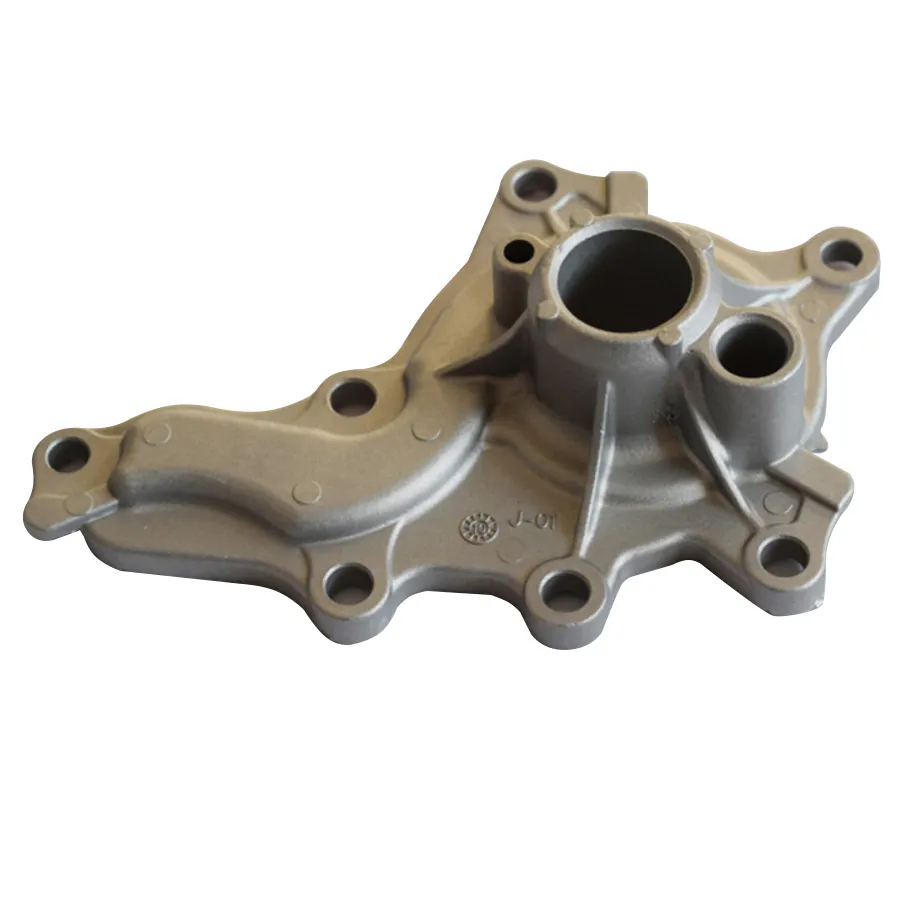
Technical Specifications and Parameters
Understanding the critical technical specifications of an automobile water pump is essential for proper selection and integration. The performance parameters vary significantly between mechanical and auto electric water pump designs. Below is a comparative table highlighting key specifications:
Automobile Water Pump Specification Comparison
| Parameter | Mechanical Water Pump (Typical) | Electric Water Pump (Typical) |
|---|---|---|
| Primary Material (Shell) | Aluminum Alloy, Cast Iron | Aluminum Alloy, High-Grade Plastics |
| Drive Mechanism | Belt-driven (Engine RPM dependent) | Brushless DC Motor (Independent control) |
| Flow Rate Range | 50-200 L/min (varies with RPM) | 20-150 L/min (variable, precise) |
| Pressure Head | 0.5-1.5 bar (7-22 psi) | 0.3-1.0 bar (4-15 psi) |
| Operating Temperature | -40°C to +120°C | -40°C to +105°C |
| Voltage (Electric) | N/A | 12V, 24V, 48V (HV for EVs) |
| Power Consumption (Electric) | Parasitic mechanical loss | 50W - 500W (variable) |
| Control System | Mechanical thermostat | ECU controlled (CAN bus, PWM) |
These parameters are crucial for engineers designing cooling systems for internal combustion engines (ICE), hybrid electric vehicles (HEV), and battery electric vehicles (BEV), where the precise control offered by an electric water pump for car is often indispensable.
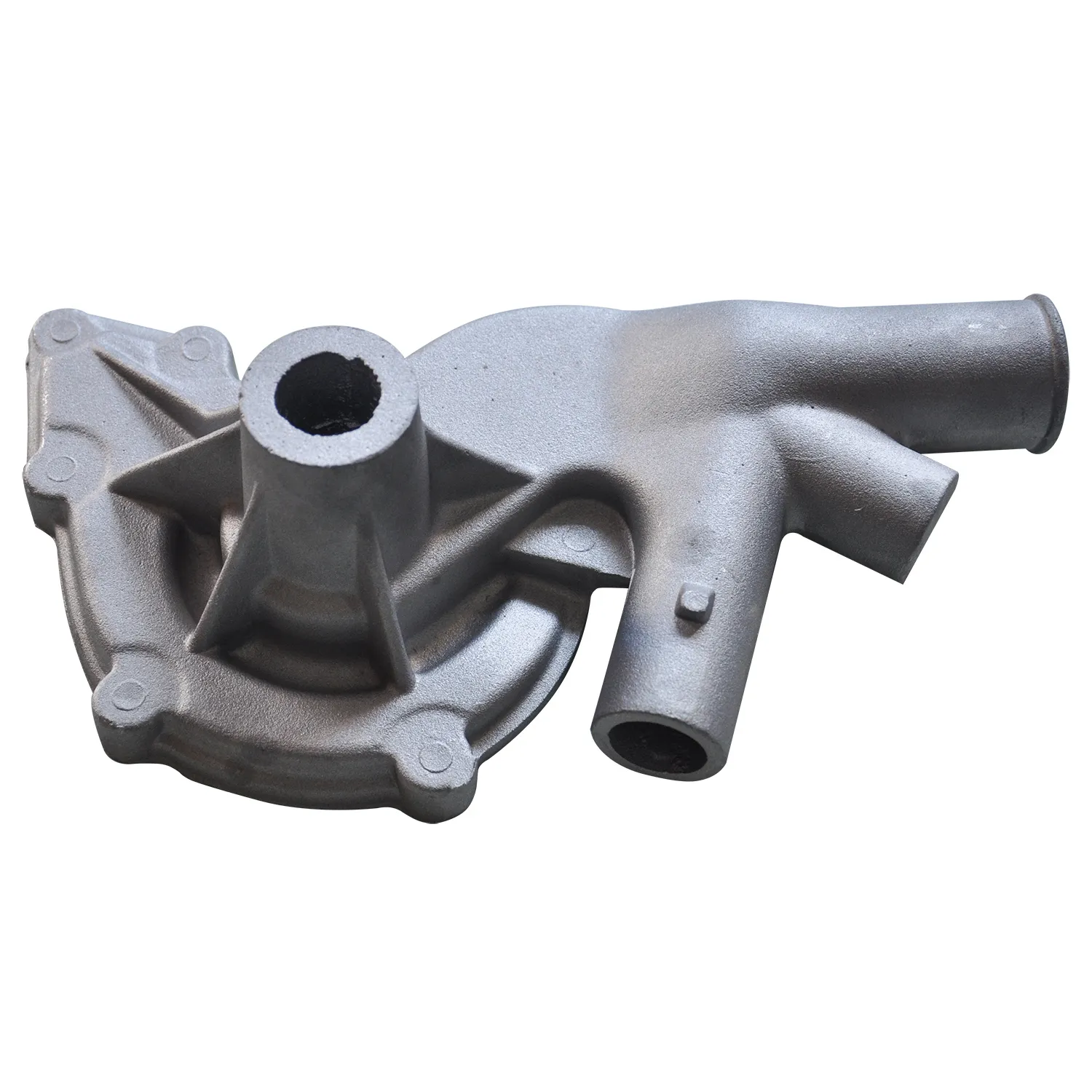
Application Scenarios and Technical Advantages
The versatility and robustness of modern automobile water pump systems allow them to thrive across a spectrum of demanding application scenarios within the automotive sector:
- Passenger Vehicles (ICE & Hybrid): For conventional engines, our durable water pump shells ensure reliable coolant circulation, preventing overheating and maintaining optimal engine performance. In hybrid vehicles, the ability of an auto electric water pump to operate independently of the engine allows for precise thermal management even when the ICE is off, critical for component longevity and passenger comfort.
- Commercial and Heavy-Duty Vehicles: Trucks, buses, and construction equipment operate under severe conditions, requiring exceptionally robust cooling systems. Our components are designed to withstand high vibrations, extreme temperatures, and extended duty cycles, providing unparalleled reliability.
- Electric Vehicles (EVs): While lacking an ICE, EVs still require sophisticated thermal management for batteries, inverters, and electric motors. High-voltage electric water pump for car applications are vital for maintaining optimal operating temperatures for these critical components, directly impacting range, charging speed, and battery life.
- Performance and Motorsport Applications: In high-performance engines, precision cooling is paramount to prevent thermal degradation and ensure consistent power output. Customizable pump solutions offer enhanced flow rates and pressure capabilities, meeting the rigorous demands of racing and tuning.
Key Technical Advantages:
- Energy Efficiency: Especially with automotive electric water pump systems, energy consumption is optimized by only circulating coolant as needed, reducing parasitic engine load and improving fuel efficiency/EV range.
- Corrosion Resistance: Utilizing advanced alloys and protective coatings, our pump shells offer superior resistance to coolant-induced corrosion and cavitation, significantly extending component lifespan.
- Precise Thermal Control: Electric pumps enable micro-level control over coolant flow, allowing for rapid warm-up, precise temperature regulation, and targeted cooling of specific components like turbochargers or exhaust gas recirculation (EGR) coolers, often integrated with engine manifolds.
- Enhanced Durability: Through robust design, high-quality materials, and stringent manufacturing processes, our water pump shells are engineered for exceptional durability under harsh operating conditions.
- Reduced Emissions: Optimized engine operating temperatures lead to more complete combustion and reduced cold-start emissions, contributing to cleaner vehicle operation.
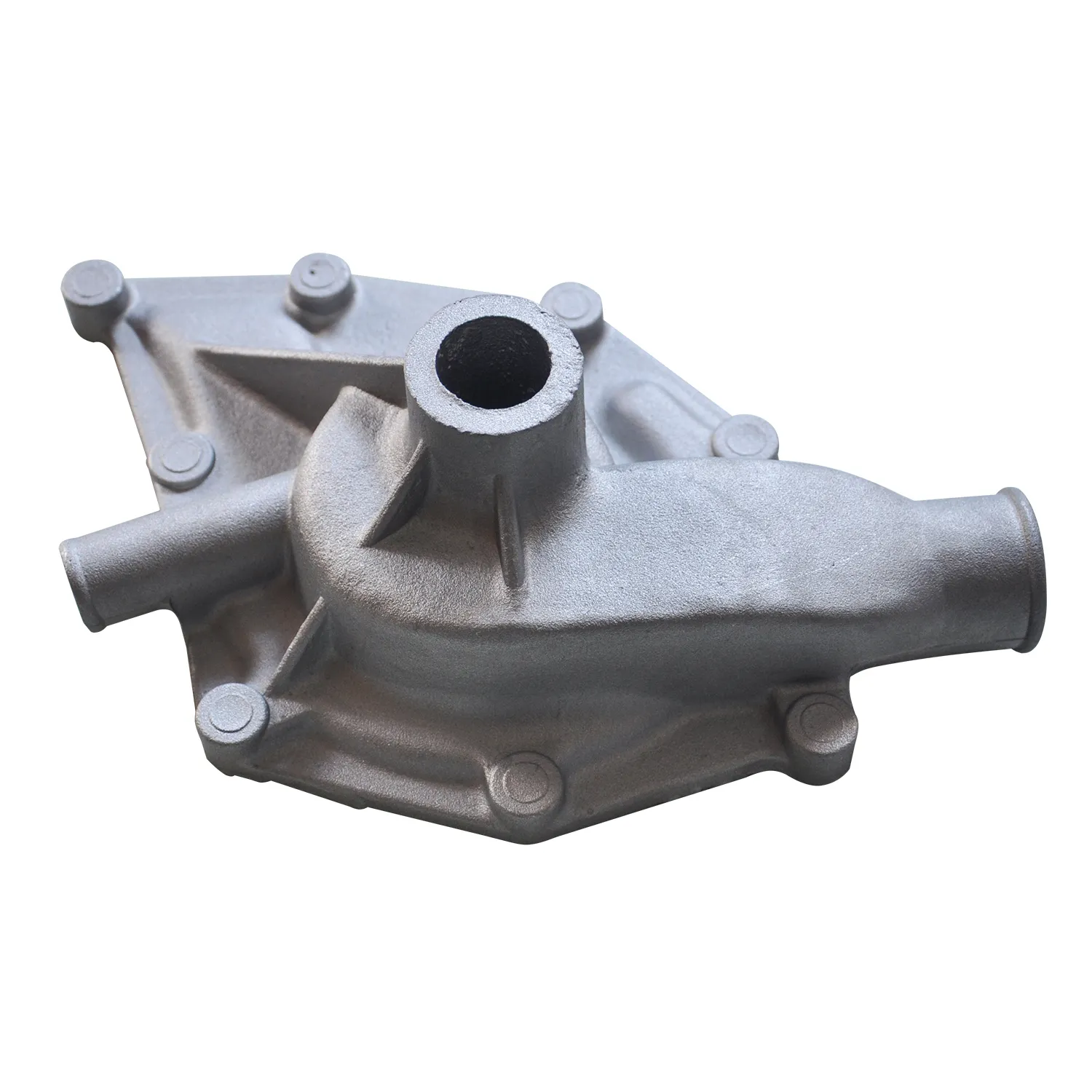
Vendor Comparison and Customization Solutions
Choosing the right supplier for critical automotive components like the automobile water pump requires a meticulous evaluation of expertise, quality, and support. While many vendors offer standard parts, few possess the capabilities for true custom solutions tailored to specific OEM requirements.
Key Differentiators in Vendor Selection:
| Feature | Standard Supplier | Our Offering (YDCastings.com) |
|---|---|---|
| Product Range | Limited, off-the-shelf components | Extensive catalog + bespoke designs for specific thermal management needs, including specialized automotive electric water pump configurations. |
| Material Expertise | Basic aluminum/iron castings | Advanced alloys (A356, ADC12), ductile iron, stainless steel, and composite considerations with full metallurgical support. |
| Manufacturing Processes | Basic casting and machining | High-pressure die casting, precision sand casting, multi-axis CNC machining, advanced surface treatments. |
| Quality Certifications | ISO 9001 (sometimes) | ISO 9001:2015, IATF 16949 (Automotive Quality Management), comprehensive internal QC. |
| Customization & R&D | Minimal or no custom engineering | Full design-to-production capability, DFM (Design for Manufacturability) analysis, rapid prototyping, tailored material selection, and process optimization. |
| After-Sales Support | Limited warranty, basic support | Comprehensive warranty, dedicated technical support team, field service availability, long-term partnership approach. |
Our approach to customization extends beyond merely modifying existing designs. We collaborate closely with automotive OEMs and Tier 1 suppliers from concept to production, offering expertise in CFD (Computational Fluid Dynamics) for impeller design, FEA (Finite Element Analysis) for structural integrity of the automobile water pump shell, and rigorous environmental testing to simulate real-world operating conditions.
Whether it's optimizing flow characteristics for a new generation electric water pump for car, developing specific mounting interfaces for unique engine manifolds, or engineering a lightweight, high-performance pump for a specialized vehicle, our team is equipped to deliver precise and reliable solutions.
Application Case Studies
Our proven track record demonstrates our capability to deliver high-performance, reliable automobile water pump components for diverse applications.
Case Study 1: Optimizing Thermal Management for a Luxury EV Platform
A leading luxury electric vehicle manufacturer approached us for a high-efficiency automotive electric water pump solution for their next-generation battery thermal management system. The challenge was to provide precise, variable flow rates for battery cooling across a wide range of ambient temperatures and driving conditions, while minimizing power consumption and noise.
- Solution: We collaborated on a custom electric water pump for car design featuring an optimized impeller geometry derived from CFD analysis, integrated smart electronics for CAN bus communication, and a robust aluminum housing. The pump achieved an efficiency increase of 15% compared to baseline models, with noise levels reduced by 8 dB.
- Result: The custom electric pump contributed to a 5% improvement in overall vehicle range and significantly enhanced battery longevity due to more stable thermal profiles. The client praised our rapid prototyping and testing capabilities, enabling them to meet aggressive development timelines.
Case Study 2: Enhancing Durability for Heavy-Duty Truck Engines
A major heavy-duty truck OEM required a more durable mechanical automobile water pump for their new line of long-haul vehicles. Previous pumps experienced premature bearing failure and cavitation erosion in the pump housing under sustained high-load operations in varied climates.
- Solution: We redesigned the pump housing using a specialized ductile iron alloy chosen for its enhanced cavitation resistance and structural rigidity. Bearing materials were upgraded to accommodate higher axial and radial loads, and the impeller received a ceramic coating. The manufacturing process was refined to ensure zero-defect casting and precision machining of critical interfaces with the engine manifolds.
- Result: Post-implementation field data indicated a 40% increase in average time between failures (MTBF), significantly reducing warranty claims and improving fleet uptime for the OEM. This demonstrated our commitment to long-term reliability in demanding environments.
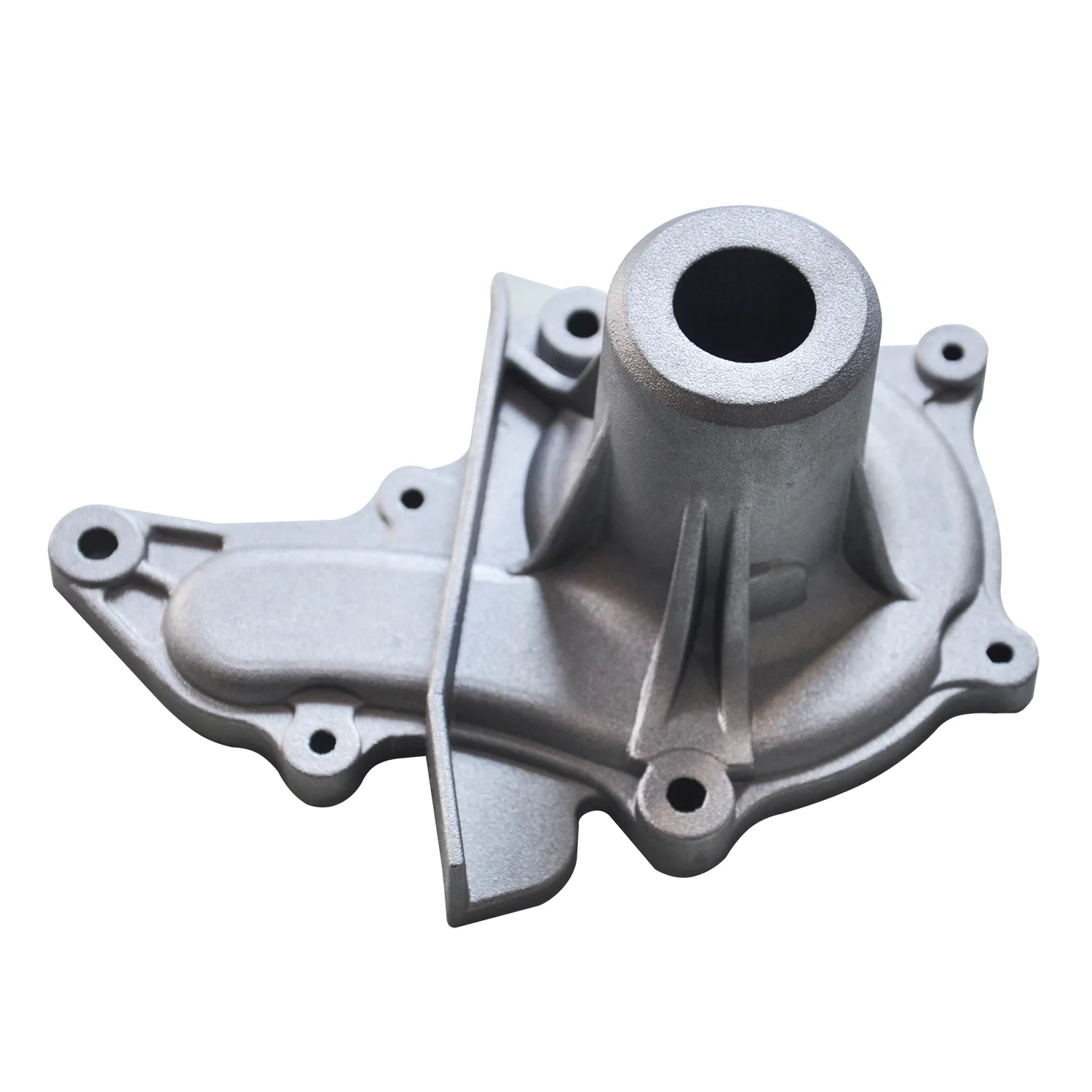
Trustworthiness and Support: FAQ, Lead Time, Warranty, and Customer Support
Frequently Asked Questions (FAQ)
- Q: What materials are typically used for your automobile water pump shells?
A: We primarily use high-grade aluminum alloys (e.g., A356, ADC12) for their excellent thermal properties and lightweight characteristics. For specific heavy-duty or industrial applications, ductile iron or stainless steel may be employed based on client requirements. - Q: How do your automotive electric water pump solutions compare to traditional mechanical pumps?
A: Auto electric water pump systems offer superior thermal management precision, independent control from engine RPM, reduced parasitic losses, and enhanced fuel efficiency. They are crucial for modern engines with advanced thermal requirements and for electric vehicles. - Q: Can you develop custom automobile water pump designs for specific vehicle platforms?
A: Absolutely. Our core strength lies in custom engineering. We work closely with OEMs to develop bespoke solutions, from material selection and casting design to advanced testing and integration with other engine components like engine manifolds. - Q: What quality certifications do you hold for manufacturing?
A: We adhere to the highest industry standards, holding ISO 9001:2015 certification for quality management systems and IATF 16949 specifically for automotive production. Our internal quality control protocols are rigorously enforced at every stage of manufacturing.
Lead Time and Fulfillment
Our lead times are highly dependent on the complexity and volume of the order. For standard components, typical production lead times range from 4-6 weeks after design finalization. Custom projects involving new tooling and extensive R&D may require 12-20 weeks for initial samples. We operate with a lean manufacturing philosophy and maintain strategic raw material inventories to ensure efficient order fulfillment and on-time delivery. Detailed production schedules and progress updates are provided to our clients throughout the process.
Warranty Commitments
We stand behind the quality and durability of every automobile water pump component we produce. All our products come with a comprehensive warranty against manufacturing defects, typically covering 2 years or 50,000 miles (whichever comes first), extending to 3 years or 100,000 miles for specific heavy-duty applications. This commitment reflects our confidence in our engineering and manufacturing excellence.
Customer Support and After-Sales Service
Our dedication to our clients extends far beyond product delivery. We provide robust after-sales support, including technical assistance, troubleshooting, and field service when required. Our experienced engineering team is available for consultation, ensuring seamless integration of our components and addressing any operational queries. We believe in fostering long-term partnerships built on trust, reliability, and continuous support.
Authoritative References
The information presented herein is based on established engineering principles and industry best practices. For further in-depth technical understanding, please refer to the following authoritative sources:
- SAE International. (2022). Electric Coolant Pump Development for Advanced Engine Thermal Management. SAE Technical Paper Series.
- ISO 9001:2015. (2015). Quality management systems — Requirements. International Organization for Standardization.
- IATF 16949:2016. (2016). Quality management system requirements for automotive production and relevant service parts organizations. International Automotive Task Force.
- K. K. Nambiar & A. M. Hussain. (2020). Advanced Materials for Automotive Components: A Review. Journal of Automotive Engineering, 234(5), pp. 1150-1165.
- Fluid Dynamics Research. (2019). Optimization of Impeller Design for Automotive Coolant Pumps using CFD. Volume 51, Issue 4, pp. 045501.
-
Materials Used in Manufacturing Cap End Pipe FittingsNewsNov.24,2025
-
Material Properties of CF8M CastingNewsNov.24,2025
-
How to Inspect Pump Cap Ends for DamageNewsNov.21,2025
-
Backward Curved Impeller – Efficient Airflow Solutions for Industry | YD CastingsNewsNov.21,2025
-
Automobile Water Pump - Efficient, Quiet, Durable & ElectricNewsNov.21,2025
-
Impeller for Pumps – High-Efficiency, Durable, OEM-ReadyNewsNov.21,2025











